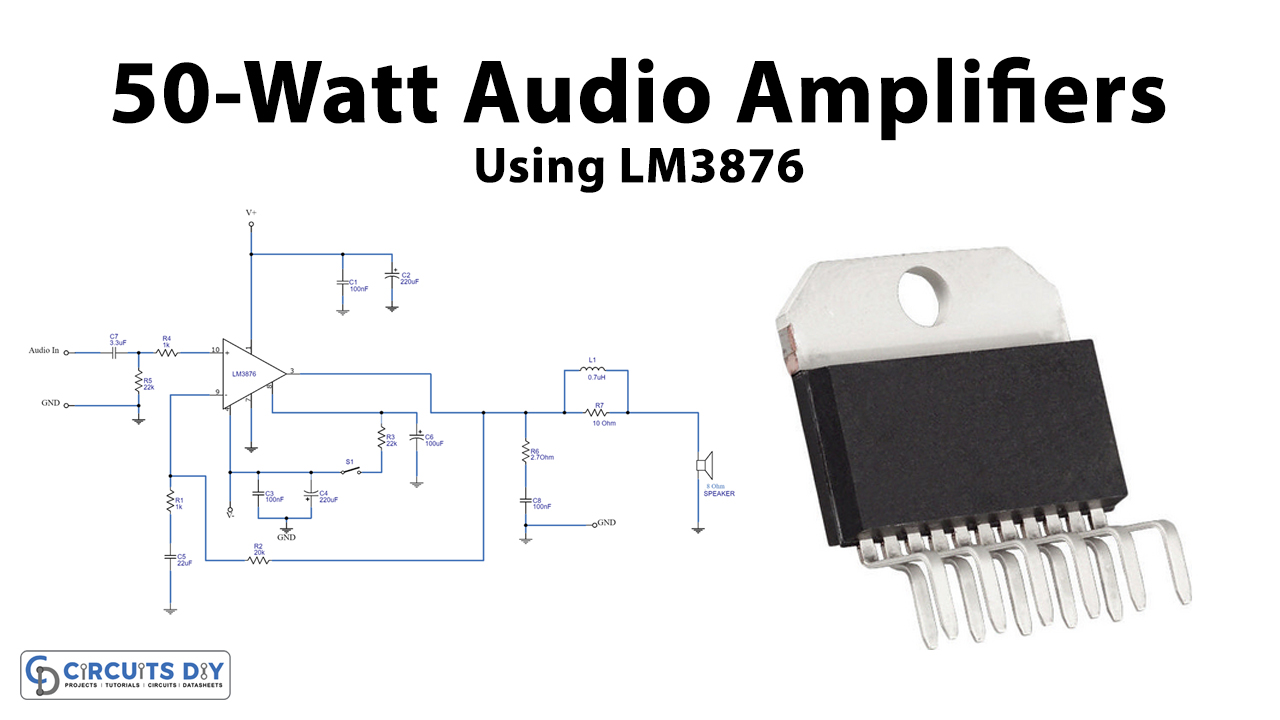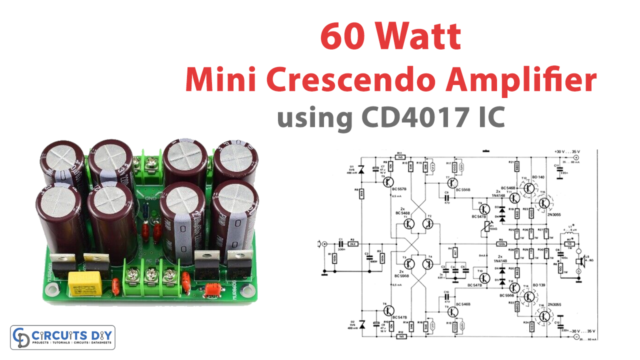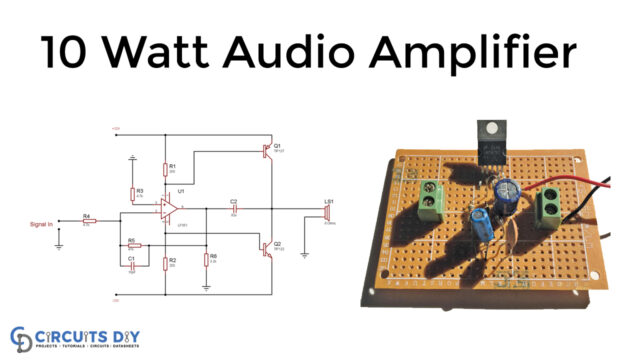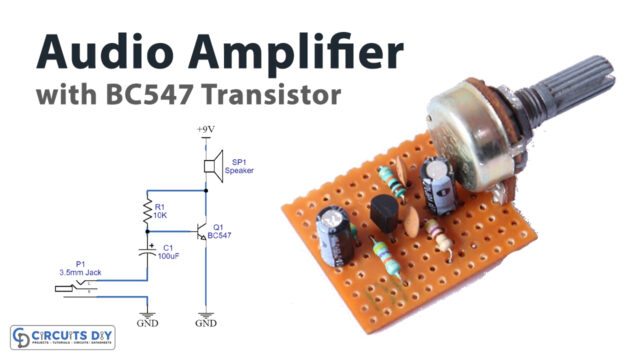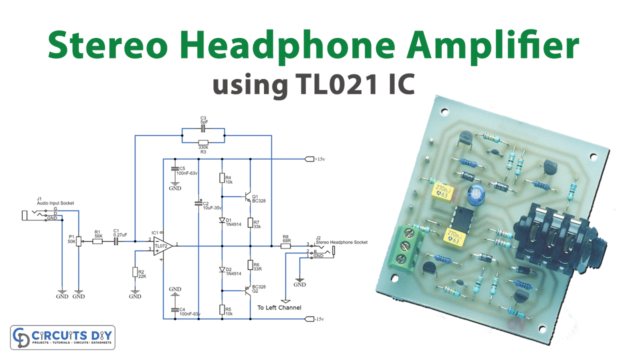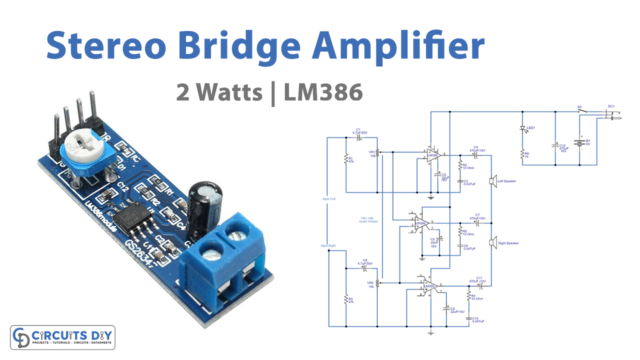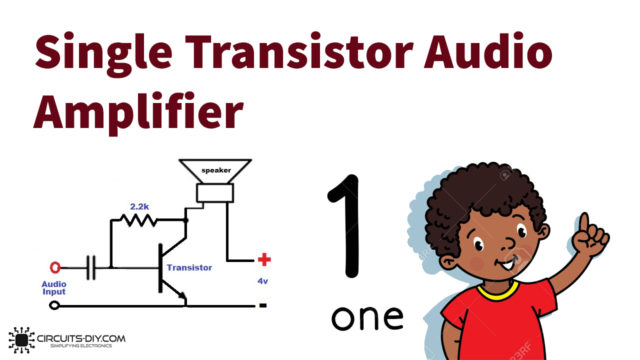Introduction
Audio amplifiers are circuits that convert low-power input audio signals into high-power audio signals at the output. The goal of the circuits is to provide a noise-free, efficient, and low distorted audio signal with greater amplitude at the output. Different devices use different kinds of audio amplifiers. Some of the audio devices use a pre-amplifier that only amplifies voltage gain and not the current gain. However, some devices that need power modification of the audio signal, use power amplifiers. So, this article is about making a power amplifier using LM3876.
Before proceeding toward the circuit, we need to know the IC LM3876. The IC belongs to the national semiconductor. And, because of its high performance,self-powered speakers, compact stereo, etc use this IC. Moreover, it has a high supply voltage range. It can be operated from the 12 to 49 DC voltage range. Further, it has a greater signal-to-noise ratio. However, it requires a heat sink as it dissipates heat.
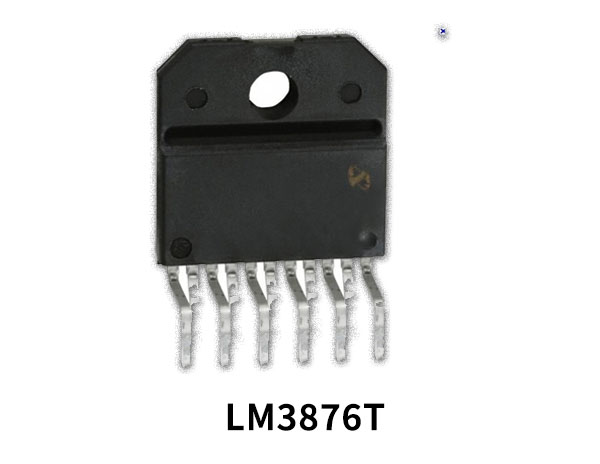
Hardware Components
The following components are required to make Audio Amplifiers Circuit
| S.no | Component | Value | Qty |
|---|---|---|---|
| 1. | PCB Board | – | 1 |
| 2. | IC | LM3876 | 1 |
| 3. | Resistor | (2.7, 10) ohms, 1K, 20k, 22K | 1, 1, 2, 1, 2 |
| 4. | Capacitor | 3.3uf, 22uf, 100uf, 220uf, 100nf | 1, 1, 1, 2, 3 |
| 5. | Inductor | 0.7uH | 1 |
| 6. | Speaker | 8 ohms | 1 |
LM3876 Pinout
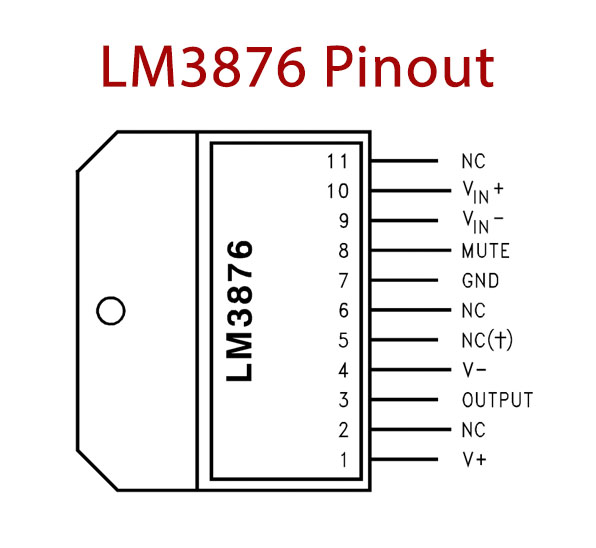
For a detailed description of pinout, dimension features, and specifications download the datasheet of LM3876
Audio Amplifiers Circuit
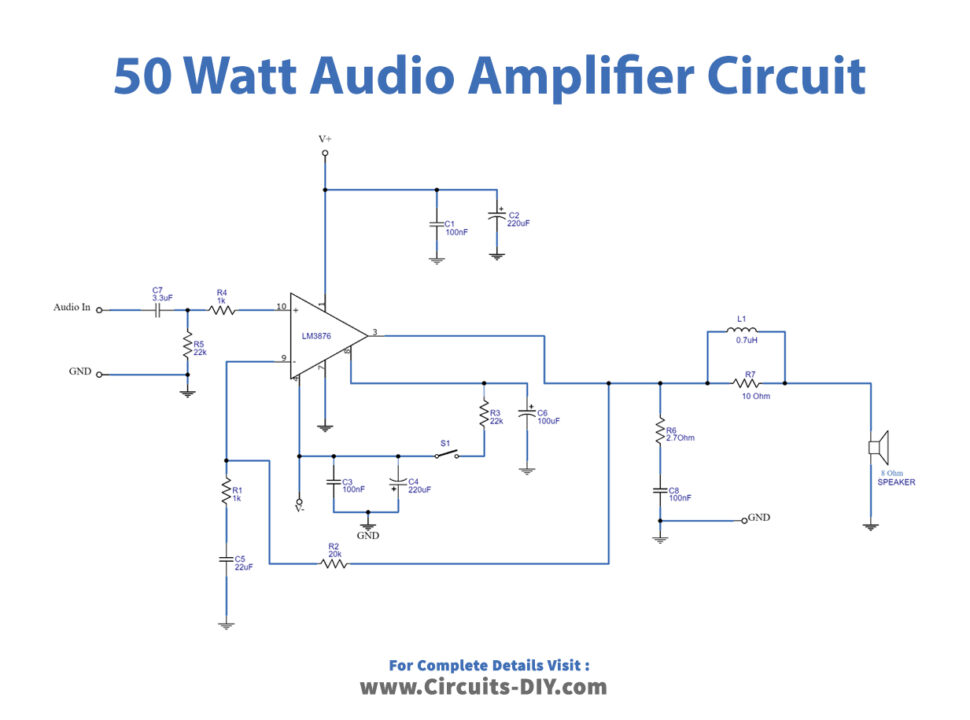
Working Explanation
The capacitor C7 works as an input decoupling capacitor and R4 works as an input resistor. Resistors R1, R2, and C5 together make a feedback circuit. While R2 works as a feedback resistance. C1 and C2 are working as the bypass capacitor dispositive rail. On the other hand, C4 and C3 are working as bypass capacitors for the negative rail. Resistor R3R3 works as a note resistor to turn OFF the more at pin 6 of the IC. R6 and C8 make the Nobel network prevent oscillations and give a stable frequency. The inductor is there in the circuit to provide high impedance t high frequencies. And, this helps R7 to decouple capacitive loads.
Applications
- Hi-fi devices
- Home audio systems
- Robots and toys
- Radio wave transmitter


